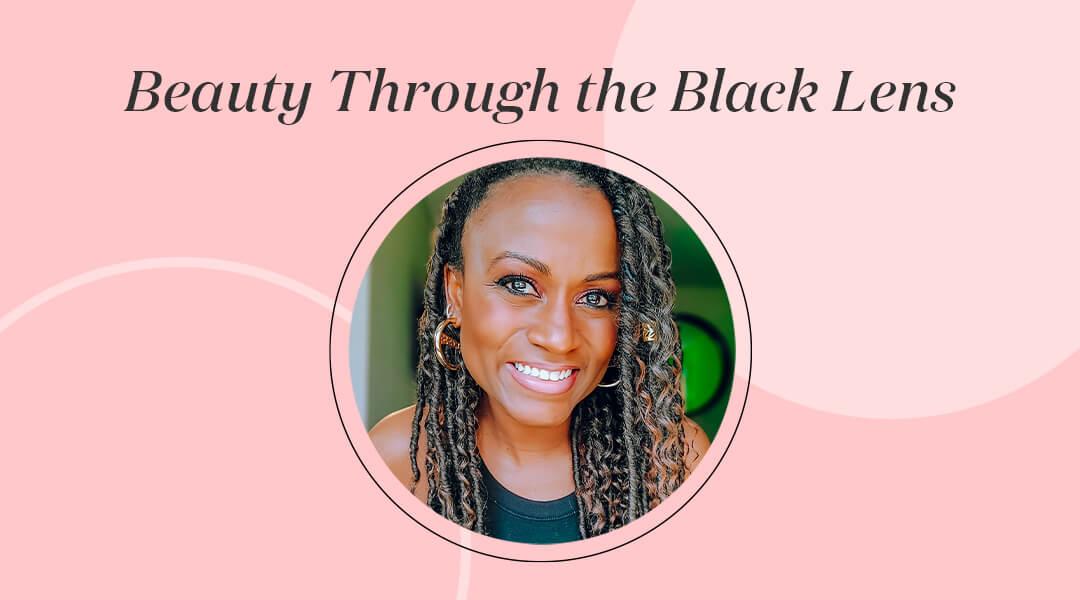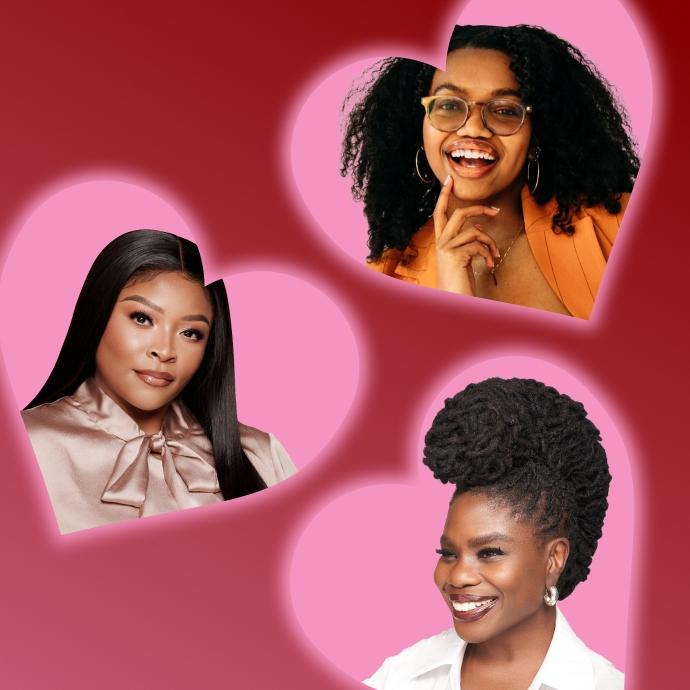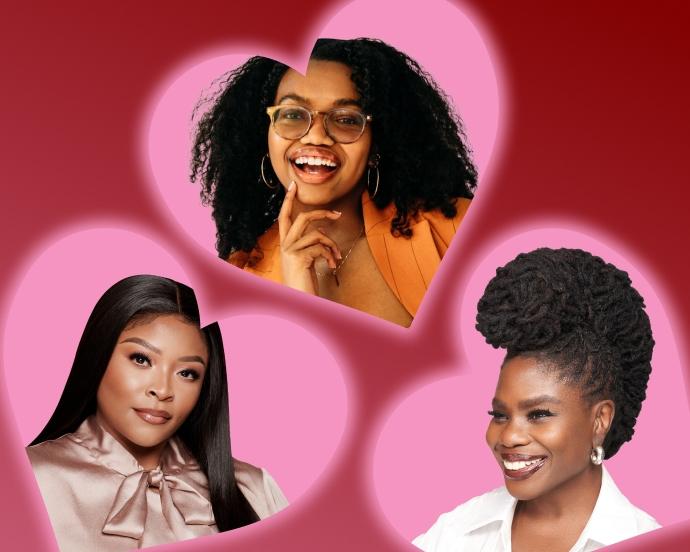The Other Face of Motherhood: Dani Wade Speaks Up About Infertility



Kindra Moné


According to the nursery rhyme, Dani Wade did everything right. First comes love, then comes marriage, then comes the baby in the carriage, right? What the fairy tales conveniently leave out is the possibility of unexplained infertility, yet it is the reality for women and birthing persons worldwide. The stakes are even higher when we mention Black women.
When Wade and her husband started trying to conceive in 2018, she imagined it would be a relatively easy task. She was posting her favorite style and beauty tips on the outside, but privately, she was struggling. So she decided to use her platform to show other women, especially Black women, that they are not alone in their fertility journey. We caught up with Wade for a raw and personal conversation about the uphill battle of conception and what she wishes she had known sooner. Keep reading to see beauty and fertility through her unique lens.
It's about glam time you treated yourself.
Join IPSY

Why Black Maternal Health Matters
Before trying to conceive, Wade hadn’t thought much about her fertility. Like most women, she imagined that she would simply have her first child when she was ready to, and that her body would fall in line with the assignment. What she didn’t know was that, according to The National Survey of Family Growth (NSFG), Black women experience fertility struggles nearly twice as often as their white counterparts.
“I chose to talk about my fertility journey honestly because I want other women, specifically other black women, to be more proactive and open to breaking these stigmas by having tough conversations and learning about their bodies,” says Wade. “We need to know more than the stereotypes that Black women are fertile. For those at prime fertility, we need help to maintain that and ensure there is access to help when it is time to plan a family. We can’t afford to wait until it feels urgent to get fertility care.”
Unfortunately, the startling statistics of Black maternal health and fertility aren’t just due to genetics; they result from centuries of systematic oppression. Several factors, such as access to affordable care and health professionals' implicit bias, play a significant part in Black women's care. “Black women should advocate for themselves as much as possible,” says Wade. “I know everyone isn’t in a situation where they can have a Black doctor for all of their care. I’m in that situation where there aren’t any local Black OBGYNs for me, but ask your doctor as many questions as possible. Ask them, ‘Do you know the rates of Black women dying when giving childbirth? Do you know the rates at which we’re at higher risk for preeclampsia and other conditions?’ Find a doctor who cares about these issues and one that won’t be defensive or dismissive. Self-advocacy is one of the great ways to get our power back. You are paying them for a service, and you have the right to interview them. Don’t fall for believing you have to continue with them because of one appointment. We deserve so much better.”
The Journey to Conception
Before we explore Wade’s personal journey, let’s break down some important things to understand about infertility that many people just haven’t been taught. “It's not as simple as 1+1=2,” says Wade. “There are so many factors in the reproductive system for both male and female organs that there could be so many hidden reasons that conception might not happen. Let’s also remember that male infertility is a thing because women often get all of the blame. As women, we’re told to deal with irregular periods, heavy periods, or excruciating periods because it means that you’re a woman and that eventually, you’ll have a baby. That’s not always true. It could be endometriosis, polycystic ovary syndrome, or other diagnoses that affect the reproductive system and overall fertility.”
When Wade and her husband started trying to conceive in 2018, they assumed it would be simple: “My mom’s mother had 10 kids, and then my mom had my sister and me in her early twenties, so she never had time to think about her fertility. Then my sister got pregnant no problem in her mid-twenties, so I thought it would be the same for me.”
Wade’s thinking aligns with so many other women who have never seen a Disney princess taking in vitro fertilization (IVF) treatments. It also doesn’t help that the women who have struggled usually do so in silence, announcing the birth of their little miracle without sharing the miscarriages or other struggles it took them to get there. In fact, a University of Michigan study about Black women and infertility found that almost all of the participants dealt with their infertility in silence. Even more, 32 percent of the participants discussed the stereotype that equates being a woman with motherhood and not feeling complete as a woman because they didn’t have biological children. Wade, on the other hand, has been very transparent.
After trying to conceive traditionally for about one year, the couple was diagnosed with unexplained infertility. “We took out a series of tests to check for diminished ovarian reserve, thyroid issues, vitamin D levels, and a host of other things that could be related to infertility,” she says. “When we made adjustments, and still, the labs showed nothing—that’s when it was considered unexplained infertility.” Since their diagnosis, the Wades have experienced three cycles of Clomid (an estrogen modulator), two unsuccessful intrauterine inseminations, one hysteroscopy, one polypectomy surgery, and most recently, a hopeful journey of IVF. This journey is taxing emotionally, mentally, physically, and financially, yet they remain optimistic for the future and share this hope with others in their community.
Leading The Conversation
While the quest for fertility is undoubtedly a weighty topic, Wade’s life is still full of joy that’s not centered around getting pregnant. She prefers a full-coverage foundation to a skin tint and says that powder blushes are her holy grail (sorry, cream blush!). You’ll see that her blog is full of beautiful adventure recommendations in Colorado, and she and her husband enjoy a skillfully executed cosplay from time to time. Most recently, she played Catwoman, Poison Ivy, and Domino from Deadpool 2. “I like playing really feminine strong characters,” says Wade. “It has allowed me to be super creative and have fun while also taking pride in nailing the character.”
Wade’s complexities are important to note because infertility does not only have one face. She recalls the day that a friend inspired her to start blogging about her journey. “I told her how much I was struggling, and she asked me if I had thought about blogging to connect with others about infertility. A lightbulb went off because I hadn’t looked at too many pages in the infertility community before that. It was hard to compartmentalize it and separate my fertility journey from my public life—it was almost like living in shame.”
Wade continues: “When I first started trying to conceive and found communities talking about this topic, at the time, I couldn’t find any Black women. I knew I couldn’t be the only one, and it was a natural progression to begin to use my page as a platform for information. It was almost therapeutic because it was something I was dealing with everyday. I wasn't going shopping all the time anymore, and I wasn't going out on photo shoots as much. So instead of forcing myself to continue with my old content, I pivoted to create meaningful connections. That’s what's more important.”
Baby-Safe Beauty and Self-Care
A few years ago, Wade naturally started to transition to cleaner beauty products, but the shift has been more intentional since she has been trying to conceive. “There are so many hormone disruptors in our beauty products, and the fact that the United States is so lenient about the number of chemicals they still allow to be placed in these products means we have to do our own research,” she explains. “My skincare is pretty much entirely clean at this point, and I’m about 70 percent of the way there with makeup. When it comes to skincare, I’ve been sticking to brands like DERMA E and BEAUTYCOUNTER (I love their serums). When it comes to makeup, I love CLOVE & HALLOW—they have great lip scrubs, eyeshadows, and beautiful matte lipstick. I also love supporting Black-owned beauty brands when I can, like MENTED COSMETICS. I also like BLACK GIRL SUNSCREEN because they don’t have many harmful chemicals traditionally found in sunscreen, plus they don’t leave a white cast.”
Wade does her best to limit disruptors like coffee, alcohol, or dairy, but in her words, “If I’m not supposed to stress during this time, then I’m not going to stress over every little thing I eat. I’m trying to switch to non-toxic cleaning products, but that one is taking longer. I’m not perfect, and I don’t claim to be.”
“I talk a lot about self-care, but I don’t get to implement it as much as I’d like to,” Wade admits. “Certain things like professional manicures and massages go out of the window when budgeting for IVF. So whether it’s doing a face mask or literally just sitting in silence for thirty minutes, I try just to take time to be still. Thankfully, I really love our home. We have a nice jet tub to soak in and plenty of room where I can destress.”
Wade’s fertility journey is still being written, and we are so grateful for the work that she is doing to destigmatize infertility and to empower through honest conversations. Her final advice to our IPSY community: “Let’s normalize these conversations. Learn about your family history and seek out providers that are willing to have tough conversations, especially Black women. Our health depends on it.”
Interested in learning from more inspiring women? Check out more Beauty Through The Black Lens and read how Hannah Harris is redefining inclusion online. Ready to take your beauty game to the next level? Take our Beauty Quiz now to get in on the IPSY Glam Bag fun! Already an Ipster? Refer your friends to earn points, which you can use toward products. Either way, don’t forget to check us out on Instagram and Twitter @IPSY.
Like this article? Share it with your friends by clicking the icons below!
Liked this post? Share!
Related Stories


Beauty Amplified
Celebrating Black Beauty, Creativity, and Culture—This Month and Always
Published on Jan 23, 2026 • 3 min read


Beauty Amplified
Our Favorite Black-Owned Beauty Brands That Remind Us Why Representation Matters
Published on Jan 23, 2026 • 18 min read


Beauty Amplified
61 Women-Founded Brands Currently Changing the Beauty Game
Published on Dec 14, 2024 • 15 min read


Beauty Amplified
These Hispanic Heritage Month Mystery Bags by Jenn Torres Are a Tribute to Latinx Culture
Published on Aug 28, 2025 • 3 min read


Beauty Amplified
Meet the Latinx-Founded Brands Building the Beauty of Tomorrow
Published on Aug 28, 2025 • 10 min read


Beauty Amplified
Celebrating Hispanic Heritage Month and the Power of Latinx Beauty
Published on Aug 28, 2025 • 3 min read


Beauty Amplified
Meet the LGBTQ+ Founded Brands Shaping the Future of Beauty
Published on May 28, 2025 • 14 min read


Beauty Amplified
Come Along for the Pride: Your Invitation to Celebrate Love, Identity, and Expression
Published on May 28, 2025 • 3 min read


Beauty Picked Just for You
Get 5 products worth up to $70
Plus exclusive access to epic deals up to 80% off
Starting at just $14/month. Cancel anytime.